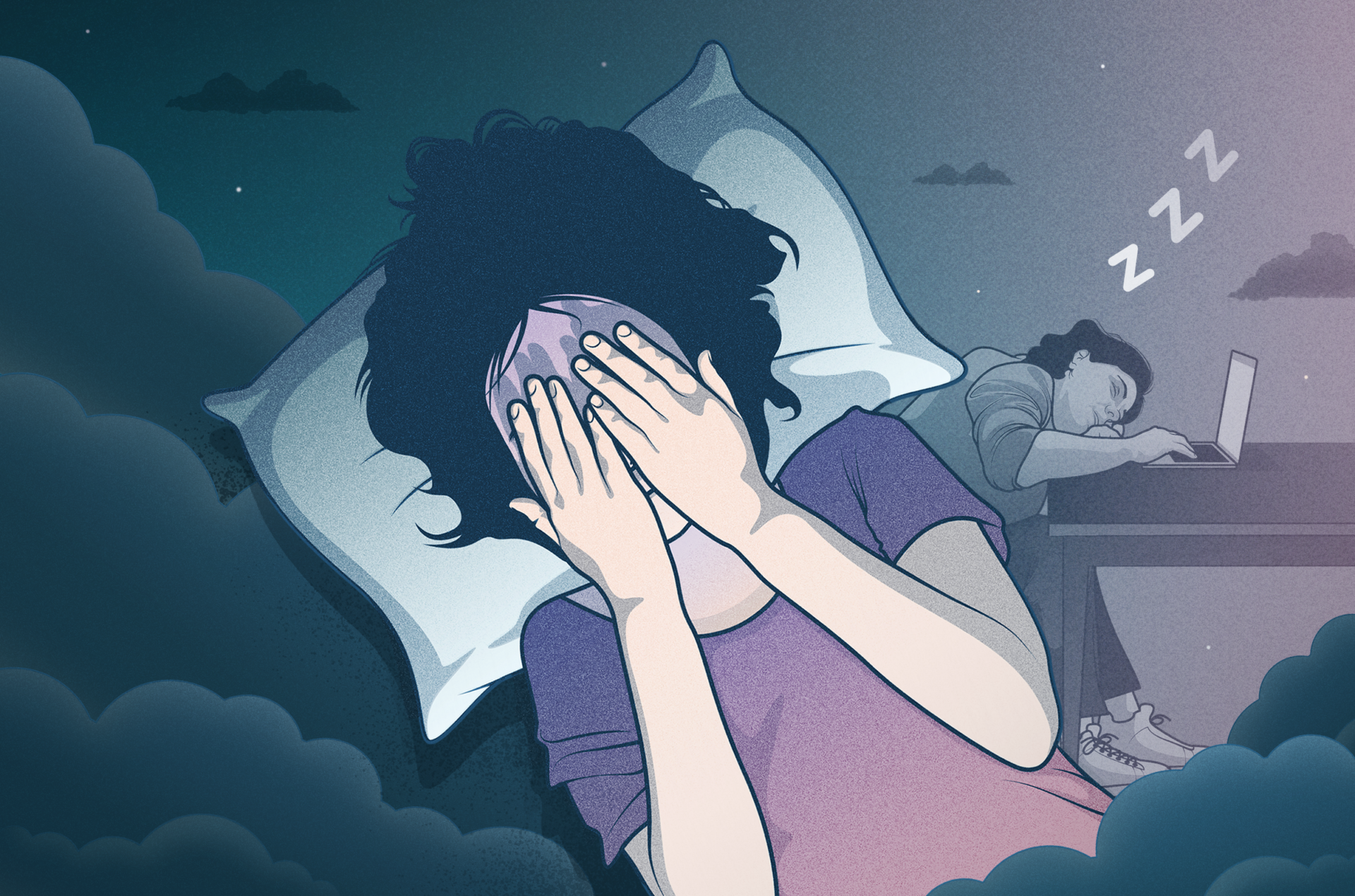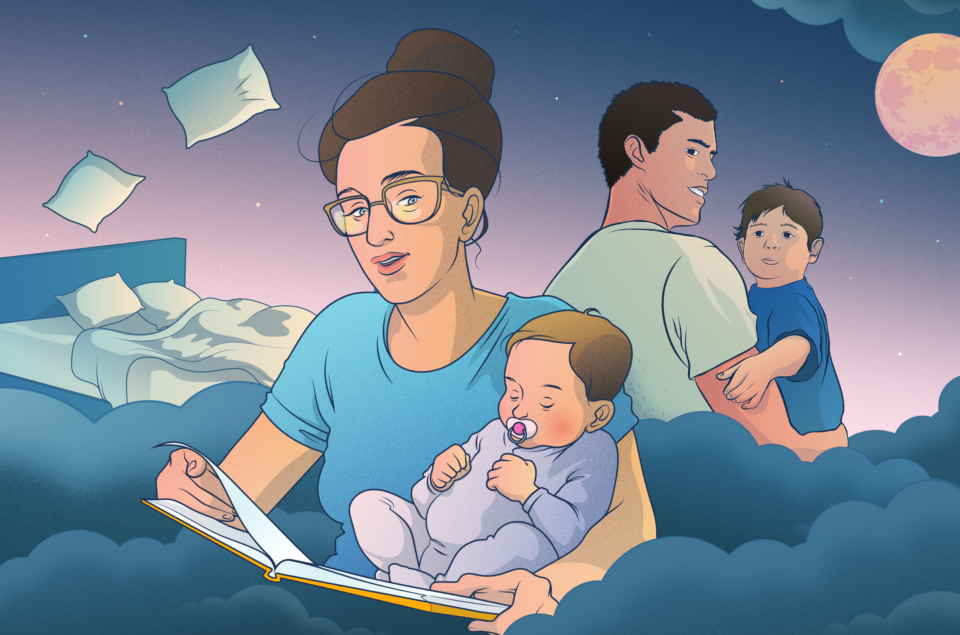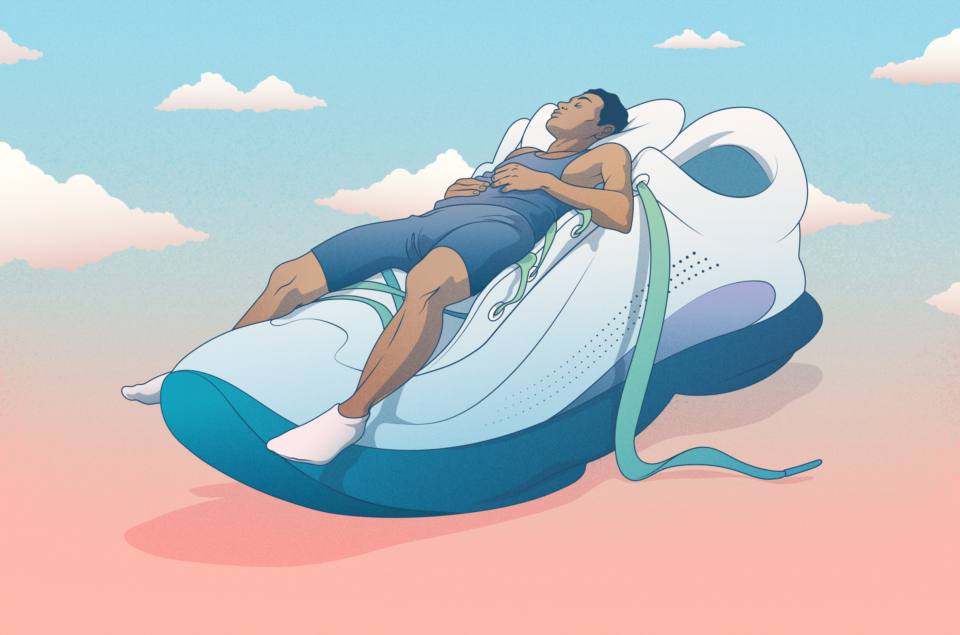Do you find yourself tossing and turning at night, wondering why you can’t sleep despite feeling tired? The struggle to fall asleep or maintain a restful slumber can be frustrating and leave you feeling even more tired the next day. In this article, we will delve into the hidden causes of sleeplessness and shed light on the enigma of why you can’t sleep even though you feel tired. By understanding these underlying factors, you can take proactive steps to improve your sleep quality and overall well-being.
Why can’t I sleep at night even when I’m tired? Understanding the causes
Feeling tired but unable to sleep refers to a condition where an individual experiences fatigue and a strong desire to rest, yet finds it difficult to fall asleep or maintain restful sleep throughout the night. It is a common sleep-related issue that affects many individuals whose answer lies in the complex interplay between various physiological and psychological factors.
1. Stress and Anxiety
Stress and anxiety are not conducive to restful sleep. When experiencing stress, the hormone cortisol tends to surge, hindering the body’s ability to relax and fall asleep. Moreover, during nighttime, our minds tend to engage in incessant rumination or excessive worrying. Without any distractions, while lying in bed, we often find ourselves repeatedly dwelling on anxious thoughts.
1.1 Overthinking and worries
One of the leading causes of sleeplessness is a racing mind. When your mind is preoccupied with worries and overthinking, it becomes challenging to relax and enter a state of restful sleep. The thoughts and concerns may keep you awake for hours, leaving you tired and exhausted the next day.
1.2 Emotional turmoil
Emotional turmoil, such as dealing with a breakup, loss, or significant life changes, can also contribute to sleep difficulties. Emotional stress can disrupt your sleep patterns, making it harder to fall asleep or stay asleep throughout the night.
If you have a racing mind that won’t let you sleep, give a shot at practicing scientifically validated breathing exercises that can effectively reduce your stress levels and promote better sleep. Engaging in these exercises can also serve as a diversion to interrupt the cycle of rumination. A recent study conducted in 2021 discovered that deep breathing and progressive muscle relaxation techniques resulted in reduced anxiety and enhanced sleep quality among older adults (who were hospitalized).
2. Lifestyle Factors
Your behavior, activities and, in general, what you do during the day and prior to bedtime can stop you from sleeping at night, even when you’re tired:
2.1 Unsynchronized circadian rhythm
When you find yourself fatigued throughout the day but wide awake during the night, it is typically an indication that your body’s internal clock, known as the circadian rhythm, has become disrupted.
The circadian rhythm operates on an approximately 24-hour cycle and plays a crucial role in regulating your sleep patterns. If you are out of sync with this rhythm, you may experience tiredness, yet your body may not be adequately prepared for sleep, resulting in difficulty falling asleep.
Several factors can contribute to being out of sync with your circadian rhythm, such as:
- Working night shifts or having rotating shifts
- Experiencing social jetlag or having an irregular sleep schedule
- Living in discordance with your chronotype, such as when a night owl is required to wake up early for work.
2.2 Poor sleep hygiene and habits
If you have poor sleep hygiene, you may encounter difficulties in initiating sleep, despite feeling tired. To exacerbate matters, you may also experience nighttime awakenings, further impeding your ability to obtain sufficient rest.
Poor sleep hygiene includes the following practices:
- Maintaining an irregular sleep schedule: Maintaining a consistent sleep routine is crucial for a good night’s rest. Irregular sleep patterns, such as staying up late or frequently changing your bedtime, can throw off your body’s internal clock. This inconsistency can make it challenging to fall asleep and wake up feeling refreshed.
- Unhealthy habits, such as excessive caffeine intake, irregular exercise, or consuming heavy meals close to bedtime, can interfere with your ability to sleep well. Caffeine, a stimulant found in coffee, tea, and certain beverages, can disrupt your sleep cycle and make it difficult to unwind.
- Insufficient exposure to natural light in the morning, coupled with excessive exposure to light before going to bed.
- Resorting to over-the-counter sleep aids to induce sleep when not truly fatigued.
Make an effort to maintain a consistent sleep schedule, even during your days off. It is beneficial to either embrace your natural chronotype (there is nothing inherently wrong with being a night owl!) or adjust and synchronize your circadian rhythm to align with your desired lifestyle, whether that involves shifting it earlier or later.
3. Environmental Factors
If you feel uncomfortable or there’s some external factor annoying you, it will be difficult for you to fall asleep no matter how sleepy you are.
3.1 Noisy Environment
A noisy environment can significantly impact your ability to fall asleep and stay asleep. Loud noises from traffic, neighbors, or other sources can disturb your sleep and leave you feeling tired the next day. Creating a quiet and peaceful sleeping environment is key to your sleep quality.
3.2 Uncomfortable Bedroom
An uncomfortable bedroom can also contribute to sleep difficulties. Factors such as an unsupportive mattress, improper room temperature, or inadequate ventilation can make it hard for you to relax and drift into a deep sleep.
The direct solution for this is finding out what’s really stopping you from having a good night’s rest:
- Explore different sleep positions to find one that offers optimal comfort.
- Experiment with varying pillow positions or even try sleeping without a pillow.
- Contemplate acquiring a mattress topper or investing in a new mattress.
- Ensure that your bedroom maintains ideal conditions of darkness, coolness, and tranquility. You can achieve this by using earplugs, an eye mask, and ensuring your bedroom has a temperature range of 65 to 68 degrees Fahrenheit.
4. Medical Conditions
The reason you’re struggling to fall asleep and stay asleep isn’t always something you can control. Unfortunately, medical conditions can play a disruptive role when trying to fall asleep, and can throw a wrench into our sleep routines:
4.1 Sleep disorders
The cause of your sleep difficulties can be attributed to a sleep disorder, for example:
- Insomnia: You may encounter challenges when it comes to falling asleep, staying asleep or waking up excessively early. While chronic insomnia can have a genetic basis, it can also be influenced by poor sleep hygiene.
- Delayed sleep-wake phase disorder: This condition manifests as a significant delay in your sleep patterns compared to the natural light-dark cycle.
- Restless leg syndrome: This uncontrollable urge to move your legs commonly occurs in the evening, impeding the ability to fall asleep.
- Sleep apnea: This disorder involves the partial or complete closure of the airways during sleep, leading to interruptions in breathing and subsequent awakenings. After waking up, heightened stress levels can make it challenging to return to sleep, even though leading to daytime fatigue. Research indicates that sleep apnea and insomnia often coexist.
Always consult your healthcare provider or sleep specialist to address your sleep concerns. These professionals possess the expertise to conduct tests and evaluations for potential sleep disorders, enabling them to prescribe the most suitable treatments to enhance your sleep quality and overall well-being. Options may include medication, lifestyle adjustments, the utilization of a continuous positive airway pressure (CPAP) machine, or cognitive behavioral therapy for insomnia (CBT-I).
4.2. Your hormones
Hormones can disrupt the delicate balance of your sleep patterns. Fluctuating hormones can affect various aspects of your body, such as body temperature regulation, anxiety levels, and may give rise to symptoms like hot flashes or night sweats. Particularly in women, there are specific life stages when hormones are the most disruptive:
- Menstrual cycle
- Pregnancy
- Menopause or perimenopause (the transitional phase before menopause)
The solution lies in mitigating the sleep disturbances caused by hormonal fluctuations. Give special attention to maintaining good sleep hygiene, particularly by fostering a cool and tranquil environment before bedtime.
4.3 Other medical conditions
Some health issues and the medications to combat them can also be the cause behind sleeplessness. For example:
- Asthma: This respiratory condition can manifest even during sleep, causing significant breathing difficulties that hinder restful sleep.
- Gastroesophageal reflux disease (GERD): The recurring discomfort of reflux or heartburn can contribute to numerous sleepless nights, while also increasing the likelihood of snoring and sleep apnea.
- Chronic pain: Pain is a formidable adversary to sleep. Individuals experiencing unmanaged pain are prone to experiencing poor sleep, which further exacerbates the cycle of sleep deprivation and amplifies the perception of pain.
- Diabetes: Uncontrolled diabetes can significantly disrupt sleep due to various factors such as blood sugar and insulin imbalances, frequent urination, etc. These aspects collectively contribute to poor sleep quality in individuals with diabetes.
- Itching: Conditions such as psoriasis and eczema can induce intense burning and itching sensations on the skin, to the extent that they become consuming distractions. No matter how many sheep you count, the persistent itch remains at the forefront of your thoughts. Moreover, even if you manage to drift off to sleep, the urge to scratch vigorously can jolt you awake once more.
If you suspect that your health condition or the medication you are taking is the culprit behind your persistent sleepless nights, it is imperative to engage in a conversation with your trusted healthcare provider. By discussing your concerns and symptoms with them, you open the door to their expertise and guidance in finding suitable solutions.
Should I Stay in bed if I can’t sleep?
Experts suggest that spending prolonged periods of time in bed while struggling to fall asleep can actually perpetuate the problem. It can create an association in your mind between being in bed and being awake, leading to increased frustration and anxiety around bedtime. This can further disrupt your sleep routine and exacerbate the difficulty of falling asleep in the future.
So, if you’ve been lying awake for more than 20 minutes, it’s advisable to get out of bed and engage in a calming activity. Find a quiet spot and do something relaxing, such as reading a book, listening to soft music, or practicing gentle stretching or deep breathing exercises. The key is to choose activities that promote a sense of calm and relaxation.
However, remember that it’s essential to develop good sleep hygiene practices and a healthy relationship with your bed and bedroom, associating them with restful sleep rather than frustration. By following these suggestions and adopting a proactive approach, you can increase your chances of falling asleep more easily and enjoying restorative nights.
How to feel tired at bedtime: Unlocking the best practices for better sleep
Experiencing tiredness while being unable to sleep can be frustrating and affect your overall well-being. By recognizing the various reasons behind this issue, such as stress, lifestyle factors, medical conditions, and environmental factors, you can take proactive steps to improve your sleep quality. Prioritize self-care, develop healthy sleep habits, and seek professional help when necessary to address any underlying medical conditions.
Don’t know where to start? Kickstart your journey to better rest by downloading the Sleep Cycle app today. Explore our tailored sleep programs and unlock the secrets to a more rejuvenating sleep experience. Sweet dreams await – get started now!
Discover our Sleep Programs for free
Summary FAQs
1. Why am I tired but can’t sleep?
Feeling tired but unable to sleep can be caused by a variety of factors, including stress, caffeine intake, irregular sleep schedules, medical conditions, medications, and environmental factors. Identifying the underlying cause is essential for finding effective solutions.
2. How long does it take to fall asleep?
The time it takes to fall asleep varies from person to person. On average, it takes around 10 to 20 minutes for most individuals to fall asleep once they are in bed and relaxed. If it takes significantly longer, you may be experiencing insomnia or other sleep disorders.
3. Should I avoid napping during the day?
If you’re having trouble sleeping at night, it’s generally recommended to avoid or limit daytime napping. However, if you feel excessively tired during the day, a short power nap of 20-30 minutes early in the afternoon can help improve alertness without disrupting nighttime sleep.
4. Tired all day and then wide awake at night. Why?
Experiencing daytime fatigue and nighttime alertness can be attributed to a disruption in your body’s natural sleep-wake cycle. This misalignment, known as a circadian rhythm disturbance, can be caused by various factors such as irregular sleep schedules, working night shifts or rotating shifts, or living contrary to your chronotype (e.g., being a night owl but having to wake up early). These factors can result in feeling tired during the day but unable to fall asleep at night. To address this issue, it’s recommended to establish a regular sleep schedule, prioritize good sleep hygiene practices, and consider adjusting your circadian rhythm to align with your lifestyle and natural sleep preferences.










